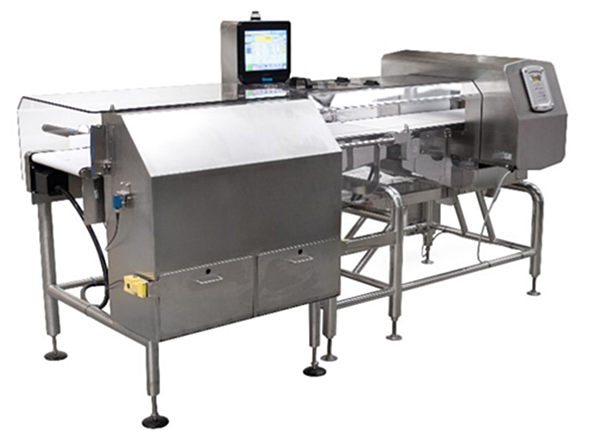7 tips for winning new manufacturing contracts
Many brands work with manufacturers to deliver their products as part of a contract. By securing these contracts, you will generate additional revenue for your plant and benefits from potentially lucrative partnerships.
However, contracts are competitive. You must prove that your plant is the best to meet the project’s targets. By doing so, you stand a much better chance of securing contracts that will contribute to your revenue and profit.

We list our top tips for winning new contracts so your plant can experience the benefits.
Build a positive reputation
The first step to winning over a manufacturing contract is showcasing your reputation. A company is far more likely to consider a plant that is well-regarded in the industry, so a positive reputation goes far.
The key to a good reputation is serving your customers well. By consistently meeting their targets and offering excellent service, you will improve your satisfaction rates and ensure people only speak positively about your plant. Happy customers may well recommend you to other companies for future use.
Focusing on output quality and resolving issues before they leave your plant is also integral. This lowers the risk of complaints, product recalls or even legal action – all of which may become publicly known and reduce your chances of winning over new business.
Understand the contract requirements
Companies want to partner with manufacturers who meet their objectives. Understanding the requirements of the contract is crucial to showcase your ability.
Start by recognising any criteria the contract has. This could include specific tasks you need to complete as part of the production process (such as quality checks or packing), product specifications (such as weight or size parameters or mixing of product types) or timeframes and targets.
It is also crucial to showcase knowledge of the products you are working with. Different materials have unique characteristics that pose challenges during the production process. You must understand these challenges and highlight your ability to overcome them.
Have the right equipment
Once you have laid out the requirements, you need to equip your plant with the solutions that will enable you to meet them.
Firstly, you must ensure that your production lines are compatible with the products you are creating. For example, if you are working on frozen food, your machinery should withstand cold temperatures and maintain product integrity. If you are working with fresh produce, you need systems with delicate handling.
Whatever the needs of the products are, build a line that caters to their needs and offers optimal processing.
It is also crucial to showcase that your plant is capable of undertaking the various tasks required under the contract. Ensure your line has the equipment and resources to do each job efficiently. This may mean investing in new solutions if you do not have them already and seeking options that match the criteria you need to fulfil.
Include product inspection
Product inspection is a crucial part of any contract. It assists you in uncovering potential defects in your output and addressing hazards before they reach your customers.
Many contracts will insist on some product inspection – they may even dictate which one. Even if it does not include inspection as a requirement, it is still a good idea to have it to minimise the risk.

The common types of product inspection include checkweighing, metal detection and x-ray. The one you use will depend on the contamination your products are prone to and the contract’s requirements. Spend time choosing one that suits your needs, as it will improve output quality. It will also help you to uncover where you need to include inspection as part of the production process.
Including product inspection will protect the quality of your output, ensuring you meet the contract needs and keeping customers happy.
Strengthen your supply chains
Another crucial factor of a successful contract is having the right resources. Most plants will source these externally through suppliers.
A regular and well-managed supply of materials is fundamental to smooth operating processes. Obtaining the materials you need when you need them will maximise productivity while managing costs.
If your supply chain is weak, you’re more likely to face late deliveries and other issues which will slow production and cause you to miss deadlines. You may even receive subpar materials that lower output quality.
In the current climate, supply chain disruption is unfortunately common, with various issues (including Brexit and strikes) still affecting delivery times and inflation raising prices. However, aim to do everything possible to strengthen yours by working with trusted partners and keeping the lines of communication open, as this will allow you to manage expectations and remain as productive.
A strong supply chain will also improve your chances of winning contracts.
Empower your staff
Your staff are as integral to your production as your equipment. There is little point investing in effective production lines if your team can’t operate them properly – even in highly automated lines.
To secure more contracts, you must prove you have a qualified workforce. This means ensuring the right skills are included among your employees, and they can work together to produce high-quality output.
A key factor in this will be offering ongoing training. Training equips your staff with the knowledge they need to operate and maintain your machinery, allowing you to obtain better results and improve productivity. It also keeps them on board with your processes and motivates a better-performing workforce.
Manage costs
Every plant wants to stay on top of costs. Doing so is vital to protecting your revenue and retaining a healthy profit.

When you bring on a new contract into your plant, you must ensure it makes financial sense. You need to consider your profitability and minimise the cost to the customer, enabling you to offer competitive pricing.
With inflation affecting many of the costs associated with manufacturing, managing costs has become more complex. There are steps you can take, including conducting regular expense audits, managing stock carefully and being more sustainable.
It will require you to consider the criteria to balance quality and cost. This allows you to remain competitive for contracts while maintaining profitability.
How Yamato can help
By winning manufacturing contracts, you will drive new revenues and profit. As you begin to win more contracts, you will build a favourable reputation and boost your resilience for the long term.
However, gaining contracts requires you to address needs and show that your plant is the right choice – with robust production lines, engaged staff and excellent management of processes.
Yamato supports manufacturers in creating the ideal conditions they need to meet their production goals – including securing new contracts – and delivering optimal results. We offer a range of machinery compatible with different products and targets, meaning there is a solution for every plant.
Get in touch today to speak to an expert about your plant’s goals.

